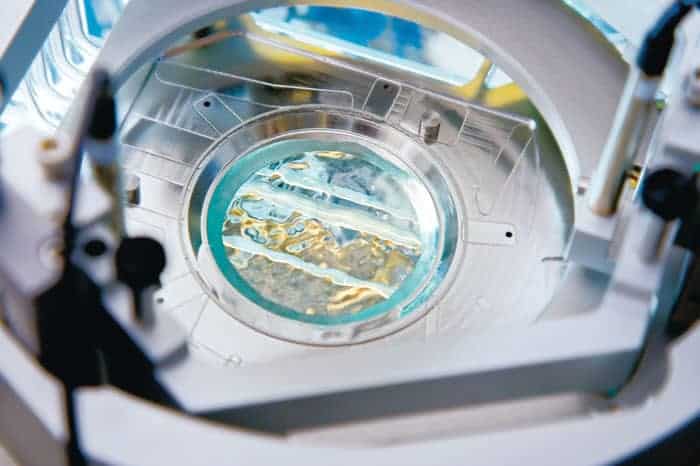
Intel – the world’s biggest computer-chip maker – has released its newest quantum chip and has begun shipping it to quantum scientists and engineers to use in their research. Dubbed Tunnel Falls, the chip contains a 12-qubit array and is based on silicon spin-qubit technology.
The distribution of the quantum chip to the quantum community is part of Intel’s plan to let researchers gain hands-on experience with the technology, while at the same time enabling new quantum research.
The first quantum labs to get access to the chip include the University of Maryland, Sandia National Laboratories, the University of Rochester and the University of Wisconsin-Madison.
The Tunnel Falls chip was fabricated on 300 mm silicon wafers in Intel’s “D1” transistor fabrication facility in Oregon, which can carry out extreme ultraviolet lithography (EUV) and gate and contact processing techniques.
Silicon spin qubits work by encoding information in the up or down spin of a single electron, making each qubit device essentially a single electron transistor that can be fabricated using standard CMOS processing.
The high quality of the fabrication process results in a 95% yield rate across the wafer similar to a CMOS logic process, with each wafer providing over 24 000 quantum dot devices.
Catching up
In recent years, Intel has fallen behind competitors such as IBM and Google who have quantum processors containing as many as 433 qubits. Yet Intel believes silicon spin qubits are superior to other qubit technologies because of scalability. Being the size of a transistor, the chip is approximately 50 x 50 nm, making it up to a million times smaller than other qubit types. Intel invests in extreme-ultraviolet lithography
James Clarke, director of quantum hardware at Intel, calls the release of the new chip the next step in Intel’s long-term strategy to build a full-stack commercial quantum computing system. He says that while there are still challenges that must be solved towards a fault-tolerant quantum computer, the academic community can explore this technology and accelerate research development.
Intel now plans to integrate the chip into its full-stack commercial quantum computing system with the so-called Intel Quantum Software Development Kit (SDK). A next-generation quantum chip based on Tunnel Falls is already under development and is expected to be released next year.




